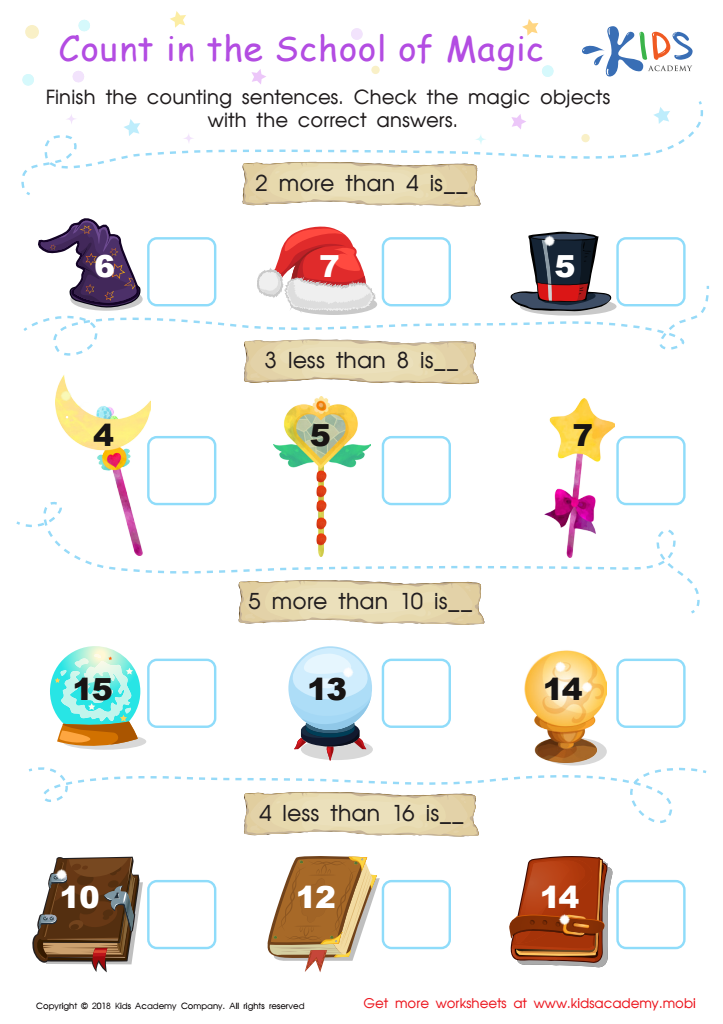Observational skills Addition & Subtraction Worksheets for 7-Year-Olds
3 filtered results
-
From - To
Enhance your child's mathematical foundation with our engaging Observational Skills Addition & Subtraction Worksheets designed specifically for 7-year-olds! These worksheets are tailored to develop critical observational skills while practicing essential arithmetic operations. Each activity encourages children to analyze, compare, and identify patterns in addition and subtraction problems, fostering both their mathematical and cognitive abilities. By integrating fun visuals and real-world contexts, our worksheets make learning enjoyable and effective. Perfect for home or classroom use, they provide an excellent resource for parents and educators alike. Help your child become a confident problem solver with our thoughtfully designed worksheets today!


Count in the School of Magic Worksheet
Observational skills are crucial for seven-year-olds as they enhance their understanding of mathematical concepts like addition and subtraction. At this age, children begin to grasp the abstract nature of numbers, and observational skills help them connect these concepts to real-world situations. Parents and teachers should care because these skills lead to a deeper comprehension of mathematics, enabling children to visualize and manipulate numbers effectively.
When children observe patterns or relationships between numbers, they develop critical thinking and problem-solving abilities. This practice strengthens their aptitude for mental math, making calculations more intuitive. Encouraging observational skills also fosters curiosity and engagement in learning, which are essential for lifelong education.
Furthermore, strong observational skills support a child’s ability to follow multi-step processes—essential in math. Parents can aid this development through playful interactions, like counting items during shopping trips or noticing patterns in everyday life.
By nurturing observational skills related to addition and subtraction, parents and teachers not only improve numerical proficiency but also instill confidence and a love for learning. Ultimately, these skills lay the foundation for future mathematical success, promoting a positive attitude toward education as children progress through their academic careers.


 Assign to My Students
Assign to My Students



















